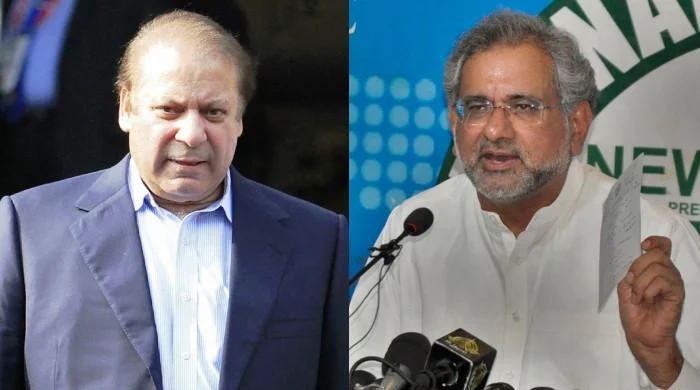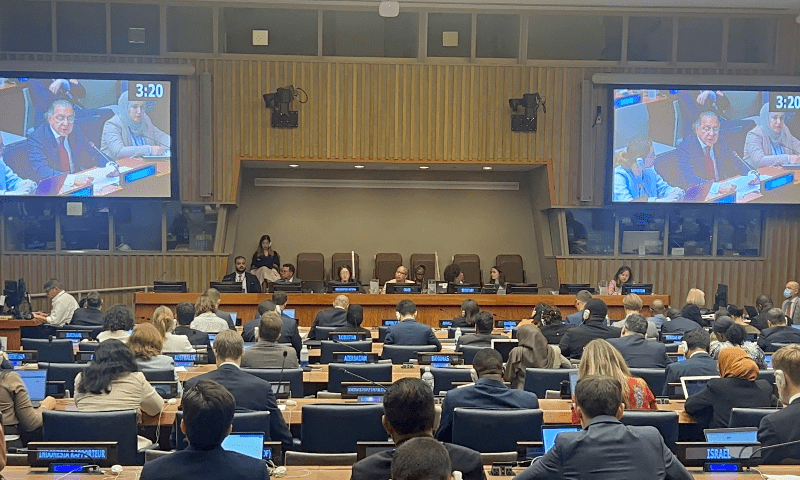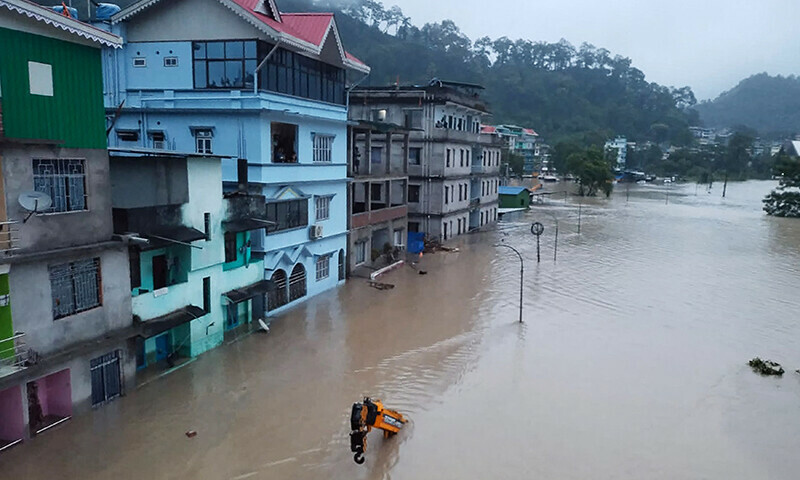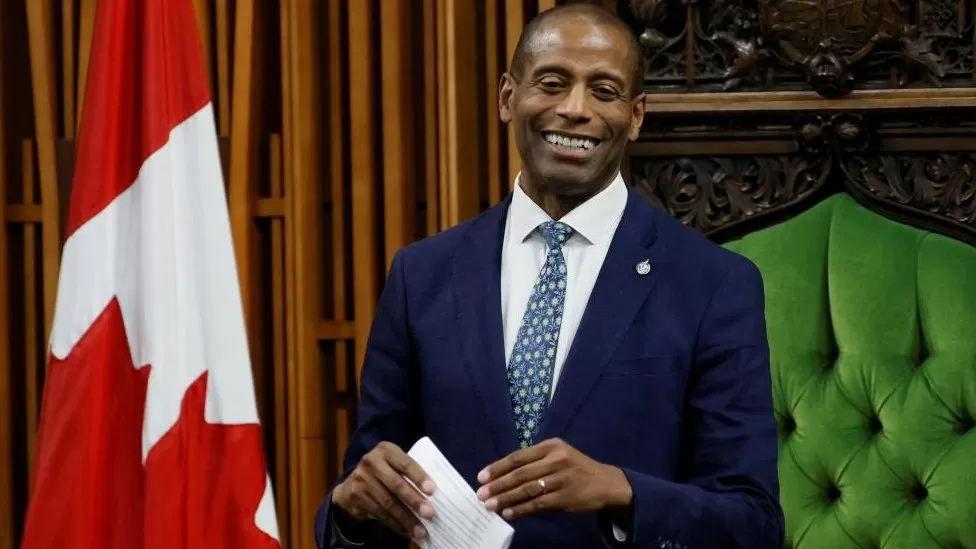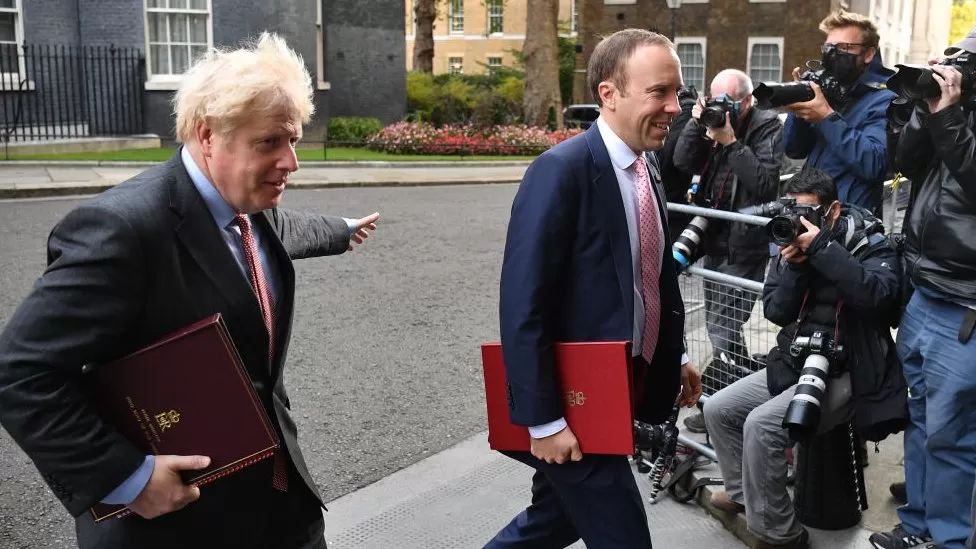Chief Justice of Pakistan (CJP) Qazi Faez Isa has hinted at concluding proceedings of petitions challenging the Supreme Court (Practice and Procedure) Act 2023 today (Tuesday), saying too many cases are pending in the apex court.
The remarks come as the full court bench — headed by CJP Isa and comprising 14 judges of the Supreme Court — resumed hearing petitions challenging the law seeking to curtail CJP’s discretionary powers.
The proceedings of the case are being broadcast live by state-run PTV.
The full court bench includes CJP Isa, Justice Sardar Tariq Masood, Justice Ijaz Ul Ahsan, Justice Syed Mansoor Ali Shah, Justice Munib Akhtar, Justice Yahya Afridi, Justice Aminuddin Khan, Justice Sayyed Mazahar Ali Akbar Naqvi, Justice Jamal Khan Mandokhel, Justice Muhammad Ali Mazhar, Justice Ayesha A. Malik, Justice Athar Minallah, Justice Syed Hasan Azhar Rizvi, Justice Shahid Waheed and Justice Musarrat Hilali.
At the last hearing, the apex court’s full court had sought replies from all parties by September 25.
At the outset of the hearing, CJP Isa said the apex court would try to conclude hearings of the case today (Tuesday).
The CJP said many cases are already pending in the Supreme Court and the court cannot spend too much time on one case.
He also directed the petitioner’s counsel to complete his arguments in 10 minutes.
CJP Isa said the powers of the chief justice are not being curtailed through this legislation rather they are being devolved among the judges.
He said the impact of this law will be particularly on the chief justice and the two senior judges.
‘Parliament bulldozed judiciary’s independence’
Presenting his arguments, the petitioner’s lawyer Ikram Chaudhry said parliament bulldozed the independence of the judiciary through the practice Act.
“Parliament tried to breach jurisdiction through the Act,” he added.
Lawyer Chaudhry also pointed that it was also imperative to review the situation of the parliament at the time it passed the act.
“Will you base your arguments on newspaper reports?” the CJP said.
To this, the lawyer said they did not have record of parliament’s proceedings.
“Did you request the speaker in writing to provide you with the record of the proceedings?” the CJP inquired.
CJP Isa also told the counsel to avoid political discussion in the court after the latter read out the statement of former prime minister before the bench.
“Don’t do politics here, [forum of] media is available. Go and do politics there,” the CJP remarked.
The CJP said some people believed that Supreme Court and parliament have come face to face over this law.
“I will not use the word war,” the CJP remarked.
The CJP said the Supreme Court Practice and Procedure Act has now become a law and added that the debate should not be held on whether parliament could have enacted legislation or not.
“Supreme Court Practice and Procedure Act is against the Constitution or not, tell me,” CJP asked the counsel.
Responding to the lawyer’s argument that the apex ocurt has powers to strike down any legislation, the CJP Isa said the Supreme Court declared in the 21st Amendment that it can also review the constitutional amendment.
“The independence of judiciary is only for courts to defend?” the CJP asked.
“If parliament makes a law to give priority to widows’ cases [then] that too will affect the independence of the judiciary?” the CJP added.
‘Act makes access to justice easy’
After lawyer Chaudhry completed his arguments, another petitioner’s counsel Hasan Irfan took the rostrum.
He told the bench that the Constitution made the use of Article 184 (3) mandatory on the Supreme Court.
At which, the CJP said: “You are saying that the not only Chief Justice has the power of Article 184-3, but the entire Supreme Court can exercise it?”
Justice Ijaz Ul Ashan said Article 191 empowers the Supreme Court to make its own rules of procedure.
“The Supreme Court Practice and Procedure Act has devolved the powers of the chief justice to a committee of judges,” Justice Ahsan remarked.
He further said the apex court itself can divide its powers into one or as many judges.
“The powers of the Supreme Court are sacred,” Justice Ahsan remarked.
Justice Athar Minallah said the Act made access to justice easy. “[…] does the parliament not have the powers to bring transparency in the internal affairs of the Supreme Court?” asked Justice Minallah.
Justice Minallah further inquired from the counsel as to how the fundamental rights pertaining to access to justice of the people were affected by the Act.
Lawyer Irfan asked whether the chief justice and the judges’ committee have the discretionary authority to take notice of the violation of his rights.
Responding to this, Justice Minallah asked whether the right to access justice was affected when the suo moto powers rested with the chief justice.
Case background
On April 13, an eight-member bench of the Supreme Court stayed the implementation of the law, which deals with the powers of the top judge in matters of public interest and seeks to limit the suo moto powers of the chief justice of Pakistan.
During the previous hearing in June, the similarities between the Supreme Court (Review of Judgments and Orders) Act 2023 — which relates to the right of appeal in suo motu cases — and the SC Practice and Procedure Act were discussed with Attorney General for Pakistan (AGP) Mansoor Usman Awan saying that parliament could look into “harmonising” the two laws.
The then-CJP Umar Ata Bandial— while he welcomed the proposal — said that the federal government should take the top court into consideration when making any legislation related to the judiciary.
Following CJP Isa’s elevation as the country’s top judge, the petition was fixed for hearing on the first day of his tenure. The top judge had constituted a full court to hear the pleas challenging the law and was televised making it the first time in the country’s judicial history, the Supreme Court allowed live telecast of proceedings on the petitions challenging the contentious law.
During the day-long hearing, a number of queries were raised by different members of the bench and the attorney general and lawyers sought time to submit their responses.
To this effect, the court directed the lawyers to submit their responses by September 25 and adjourned the hearing till October 3.
Furthermore, to continue the functioning of the Supreme Court, CJP Isa constituted a three-member committee — comprising himself, Justice Sardar Tariq Masood and Justice Ijazul Ahsan — to assign cases and form benches.
The law
The law gave the power of taking sou motu notice to a three-member committee comprising senior judges including the chief justice. It further aimed to have transparent proceedings in the apex court and includes the right to appeal.
Regarding the constitution of benches, the Act stated that every cause, matter or appeal before the apex court would be heard and disposed of by a bench constituted by a committee comprising the CJP and the two senior-most judges.
It added that the decisions of the committee would be taken by a majority.
Regarding exercising the apex court’s original jurisdiction, the Act said that any matter invoking the use of Article 184(3) would first be placed before the committee.
On matters where the interpretation of the Constitution is required, the Act said the committee would compose a bench comprising no less than five apex court judges.
About appeals for any verdict by an apex court bench that exercised Article 184(3)‘s jurisdiction, the Act said that the appeal would lie within 30 days of the bench’s order to a larger SC bench. It added that the appeal would be fixed for hearing within a period not exceeding 14 days.
It added that this right of appeal would also extend retrospectively to those aggrieved persons against whom an order was made under Article 184(3) prior to the commencement of the SC (Practice and Procedure), Act 2023, on the condition that the appeal was filed within 30 days of the Act’s commencement.
The Act additionally said that a party would have the right to appoint its counsel of choice for filing a review application under Article 188 of the Constitution.
Furthermore, it states that an application pleading urgency or seeking interim relief, filed in a cause, appeal or matter, shall be fixed for hearing within 14 days from the date of its filing.


